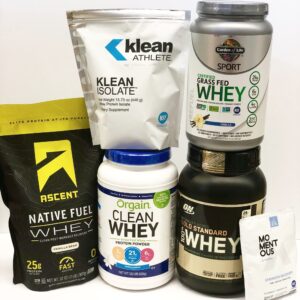Vitamins
Description: Vitamins are organic compounds that are essential for the proper functioning of the body. They are required in small amounts but play a critical role in various bodily processes, such as metabolism, immune function, and the maintenance of skin, bones, and tissues. Since the body cannot produce most vitamins, they must be obtained from food or supplements.
Vitamins are classified into two main categories:
-
Fat-soluble vitamins: These vitamins are stored in the body’s fat and liver. They include:
- Vitamin A: Important for vision, immune function, and skin health.
- Vitamin D: Essential for calcium absorption, bone health, and immune support.
- Vitamin E: Acts as an antioxidant, protecting cells from damage.
- Vitamin K: Necessary for blood clotting and bone health.
-
Water-soluble vitamins: These vitamins are not stored in the body and are typically excreted through urine. They include:
- Vitamin C (Ascorbic Acid): Key for immune function, wound healing, and as an antioxidant.
- B Vitamins: This group includes:
- B1 (Thiamine): Important for nerve function and energy production.
- B2 (Riboflavin): Helps in energy production and skin health.
- B3 (Niacin): Supports digestive health and energy metabolism.
- B5 (Pantothenic Acid): Aids in the metabolism of fats, proteins, and carbohydrates.
- B6 (Pyridoxine): Important for brain development and immune function.
- B7 (Biotin): Essential for healthy skin, hair, and metabolism.
- B9 (Folate): Crucial for cell division and pregnancy health.
- B12 (Cobalamin): Necessary for red blood cell formation and nerve function.






Reviews
There are no reviews yet.